Search Results for: kenya
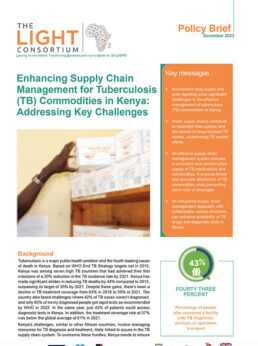
Tuberculosis (TB) is a major public health problem and the fourth leading cause of death in Kenya. Based on WHO End TB Strategy targets set in 2015, Kenya was among seven high TB countries that had achieved their first milestone of a 20% reduction in the TB incidence rate by 2021. An effective supply chain management system ensures a consistent and uninterrupted supply of TB medications and commodities. It ensures timely and accurate distribution of TB commodities while preventing stock-outs or shortages. Read more from the policy brief here:
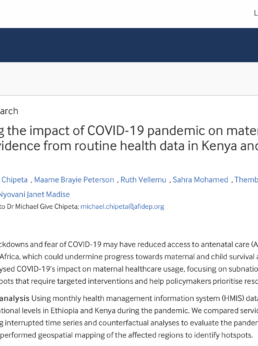
The devastating impacts and lessons learnt from other epidemic contexts show that health systems in low-income and middle-income countries (LMICs) and fragile and humanitarian contexts have a low capacity to implement an emergency response during disease outbreaks such as the COVID-19 pandemic caused by the SARS-CoV-2 virus.1 2 Such unprecedented emergency and humanitarian situations burden health systems, which, even before the disease outbreak, have struggled to provide quality essential services. Very few studies have demonstrated how COVID-19 affects progress towards achieving sustainable development goals (SDGs), especially SDG number 3 in countries including Kenya and Ethiopia. In this study, we assessed […]
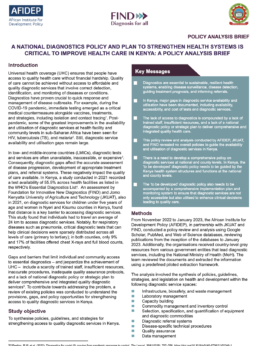
The African Institute for Development Policy (AFIDEP), in partnership Foundation for Innovative New Diagnostics (FIND) and Jomo Kenyatta University of Agriculture and Technology (JKUAT), conducted a policy review and analysis on Kenyan national diagnostics policies and plans to strengthen health systems in the country. Click here to read more.
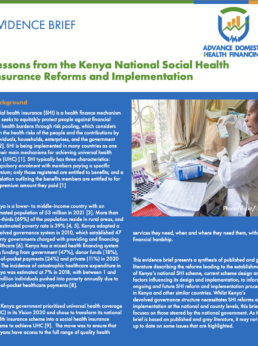
Social health insurance (SHI) is a health finance mechanism that seeks to equitably protect people against financial and health burdens through risk pooling, which considers both the health risks of the people and the contributions by individuals, households, enterprises, and the government. SHI is being implemented in many countries as one of their main mechanisms for achieving universal health care (UHC). SHI typically has three characteristics: compulsory enrolment with members paying a specific premium; only those registered are entitled to benefits; and a legislation outlining the benefits members are entitled to for the premium amount they paid. Kenya is a […]

The Kenya Constitution of 2010 guarantees all Kenyan citizens a right to access the highest attainable standard of health, including reproductive health and emergency treatment. Kenya’s health sector is working towards achieving the Vision 2030 goal of universal health coverage (UHC), which should enable all individuals to receive equitable, affordable and quality health care without suffering financial hardship. Kenya has made strides towards achieving UHC and has made commitments that act as the steering wheel to achieve this goal. In 2015, all United Nations member states, including Kenya, committed to the 17 Sustainable Development Goals (SDGs), with SDG 3 promoting […]
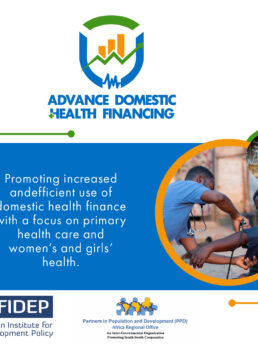
The Advance Domestic Health Financing project seeks to contribute to increasing domestic investments in health and promoting efficient utilisation of health budgets, with a focus on primary healthcare (PHC), girls’ and women’s health. The project builds on African governments’ commitments to increasing domestic financing for health and improving efficiency in budget expenditure through declarations like the 2001 Abuja Declaration, the 2019 African Union (AU)’s Africa Leadership Meeting (ALM) declaration, and other domestic, regional, and global commitments related to PHC, girls’ and women’s health including the ICPD+25, FP2030, the 2021 generation equality forum, and SDGs. The project is implemented at both […]
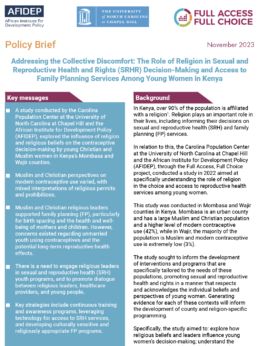
A study conducted by the Carolina Population Center at the University of North Carolina at Chapel Hill and the African Institute for Development Policy (AFIDEP), explored the influence of religion and religious beliefs on the contraceptive decision-making of adolescent and young Christian and Muslim women in Kenya’s Mombasa and Wajir counties. To read more, CLICK HERE.

Researchers at Jomo Kenyatta University of Agriculture and Technology (JKUAT) with support from the Foundation for Innovative New Diagnostics (FIND) conducted a pilot study in four of Kenya’s 47 counties selected to represent Kenya’s different disease zones to understand the diagnostic capability of health facilities in Kenya. The study aimed to develop a Diagnostic for Universal Health Coverage (UHC) Tracker, to promote integration of diagnostic data in decision-making to improve access and quality of primary care services. Click here to read more.
Many young women experience important key life transitions during adolescence and early adulthood, such as initiation of sexual activity, first use of contraceptives, marriage, and childbirth. For young women to be able to plan and manage their lives, it is critical to understand how these life events intersect and shape their contraceptive decision-making. This study explored young women’s contraceptive method use trajectories, including the factors that influence contraceptive decision-making throughout adolescence and youth. Authors: Lisa M Calhoun, Mahua Mandal, Bernard Onyago, Erick Waga, Courtney McGuire, Eliya M Zulu, Thomas van den Akker, lenka Benova, Therese Delvaux, Ilene S Speizer Full […]
This work addresses important questions about the practical implementation of post-TB services in two African countries, exploring if, how, where, and for whom these services should be provided, according to a broad range of stakeholders. We have identified strong interest in the provision of holistic care for TB patients in Kenya and Malawi, and key evidence gaps which must be addressed to inform decision making by policy makers, TB programmes, and funders around investment in post-TB services. There is a need for pilot studies of models of integrated TB care, and for cross-learning between countries and from HIV-NCD services. Authors: […]
This study was part of a 3-year (October 2019–October 2022) project called The Heightening Institutional Capacity for Government Use of Health Research (HIGH-Res) conducted in Kenya, Malawi and Uganda. The study was implemented to test interventions that strengthen the capacity of TWGs in enabling a sustained evidence use culture in the MoHs. This study focused on TWGs within the Ministry of Health (MoH) in Malawi, categorized as a low-income country in sub-Saharan Africa. The Ministry is responsible for developing, reviewing and enforcing health-related policies and standards for the health sector. The MoH performs its functions through 14 directorates, including a […]
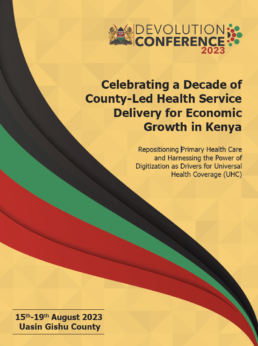
In the lead up to the Kenya’s Devolution conference in August 2023, African Institute for Development Policy (AFIDEP), through the Advance Domestic Health Financing project, presented a rapid synthesis of published and grey literature highlighting select successes and challenges of existing initiatives to inform ongoing and future county level Social Health Insurance fund and Universal Health Coverage reforms and implementation processes in Kenya and other countries with a similar devolved governance structure. The evidence brief was published in the Council of Governors booklet: Celebrating a decade of county-led health service delivery for economic growth in Kenya; Repositioning primary health care […]
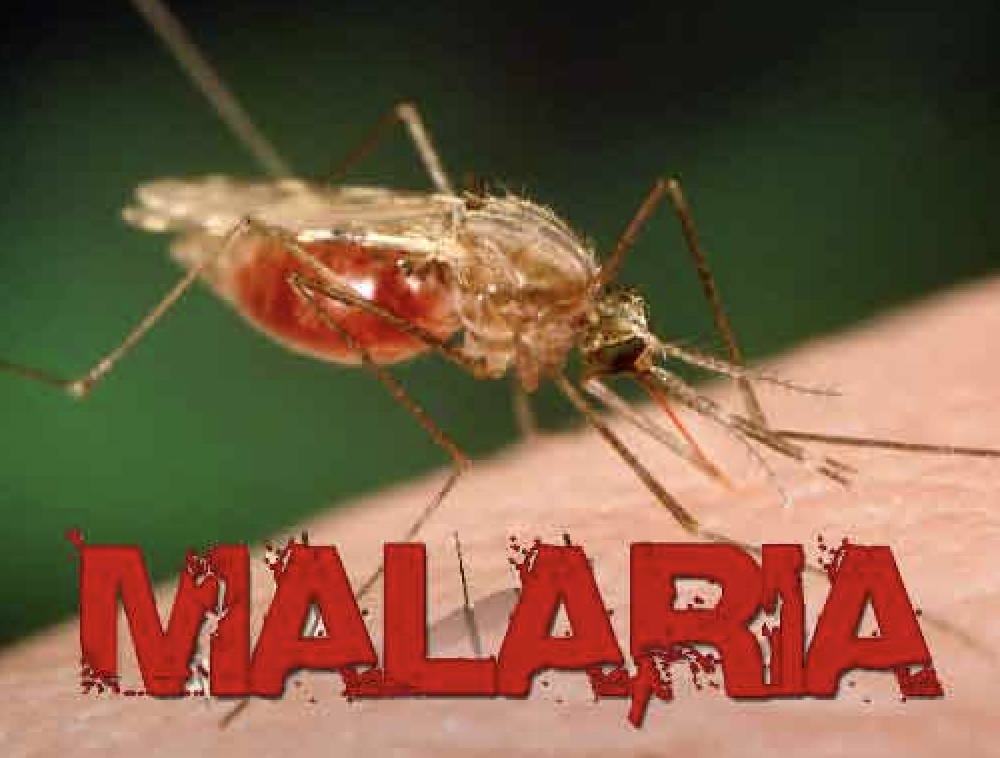
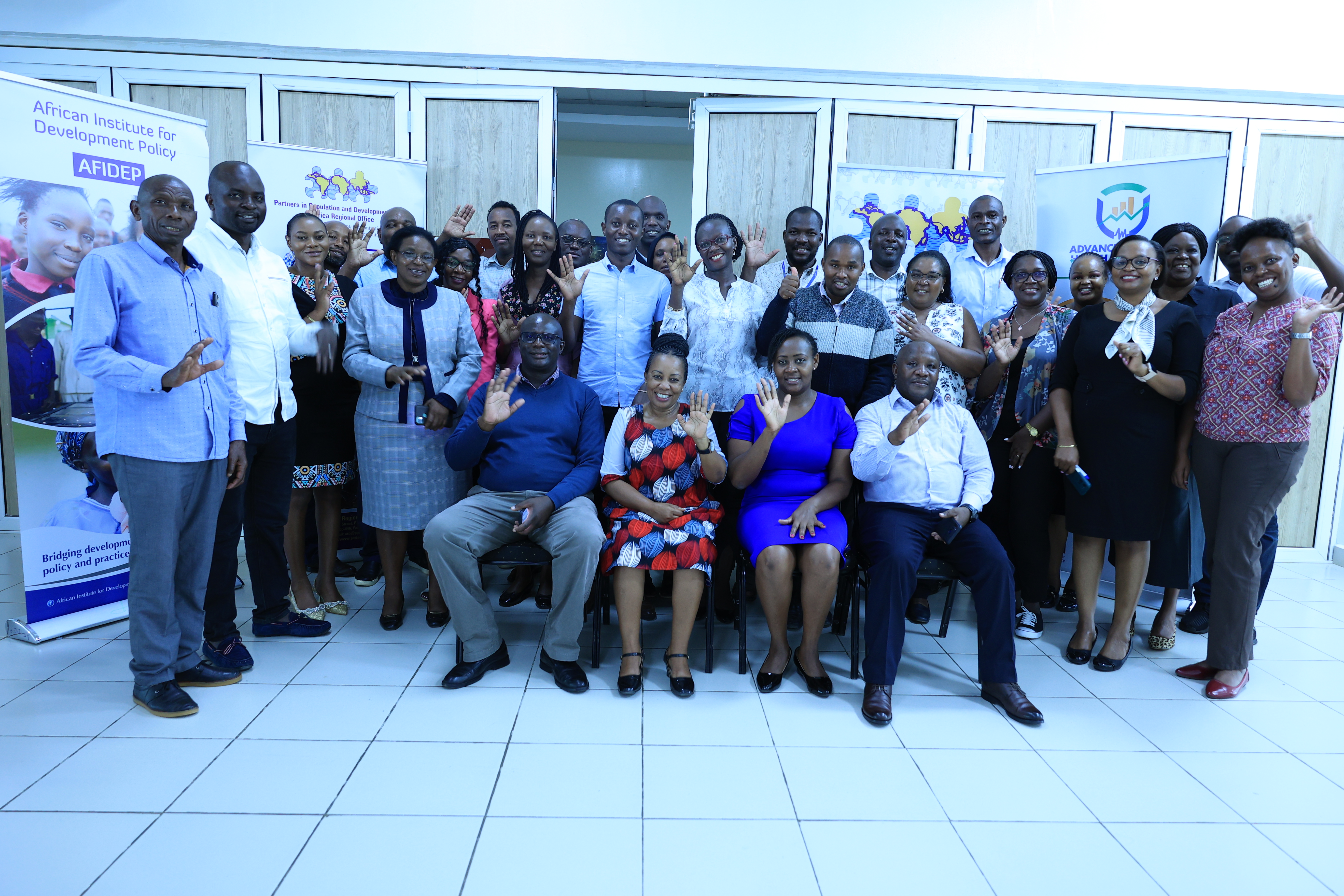
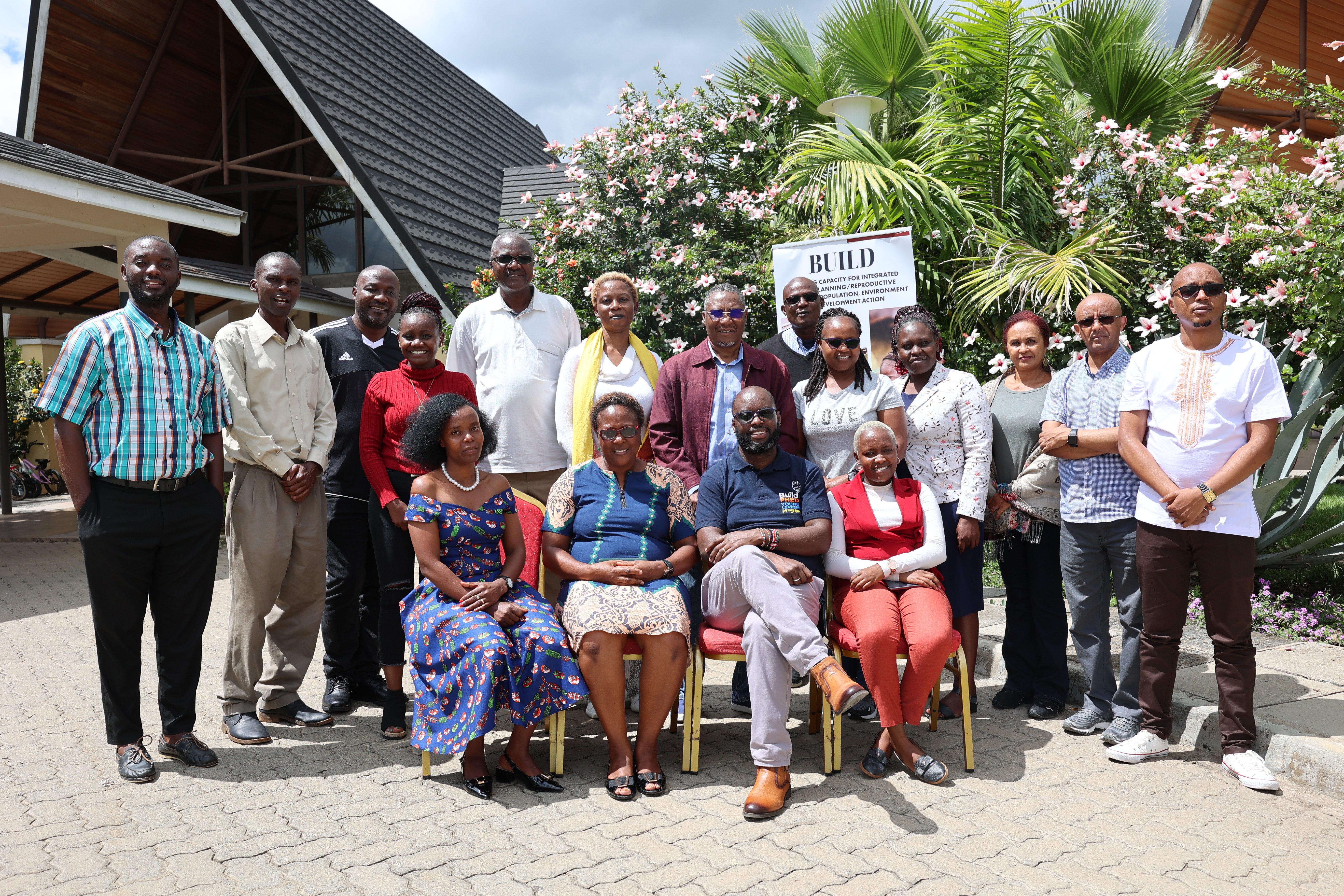
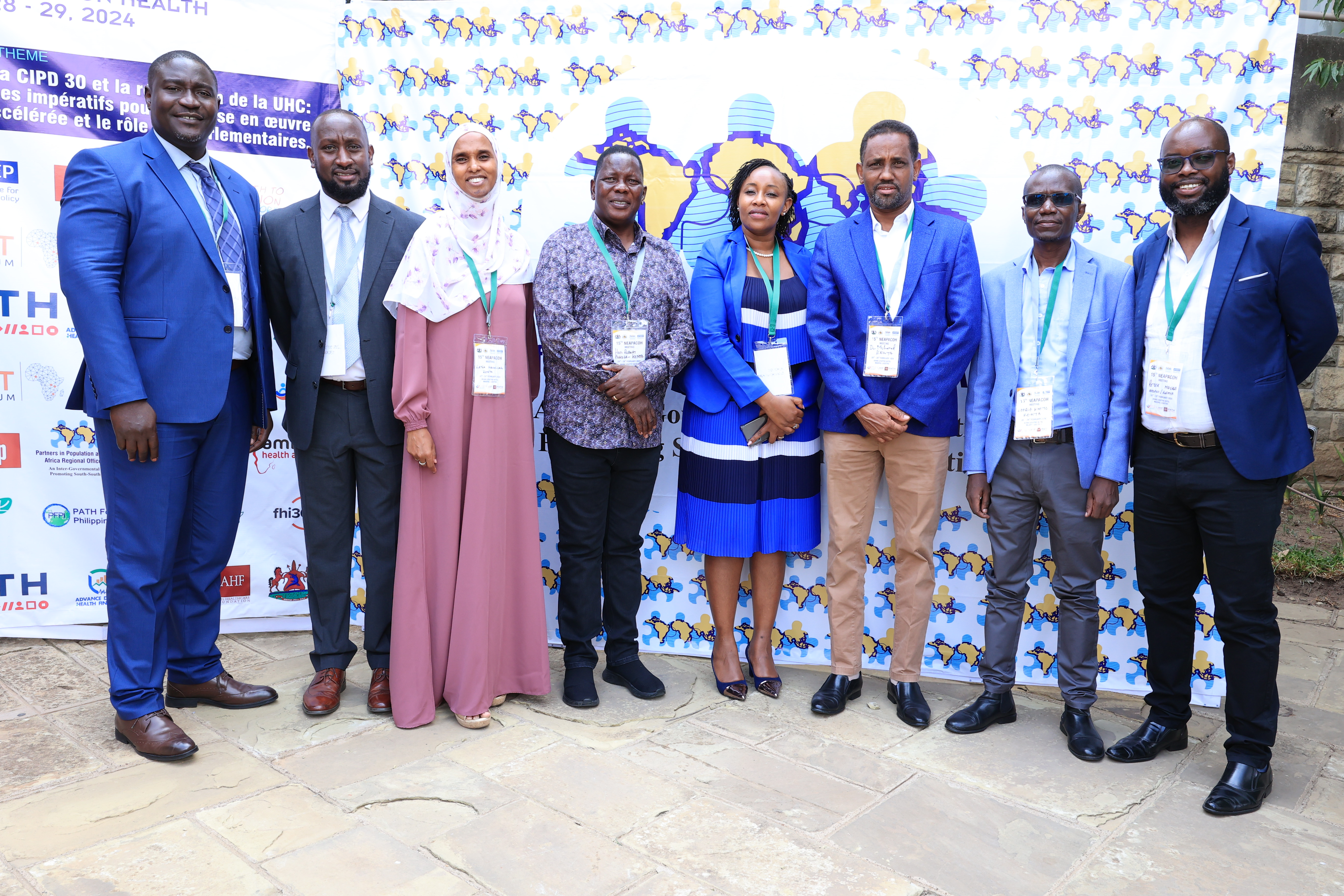
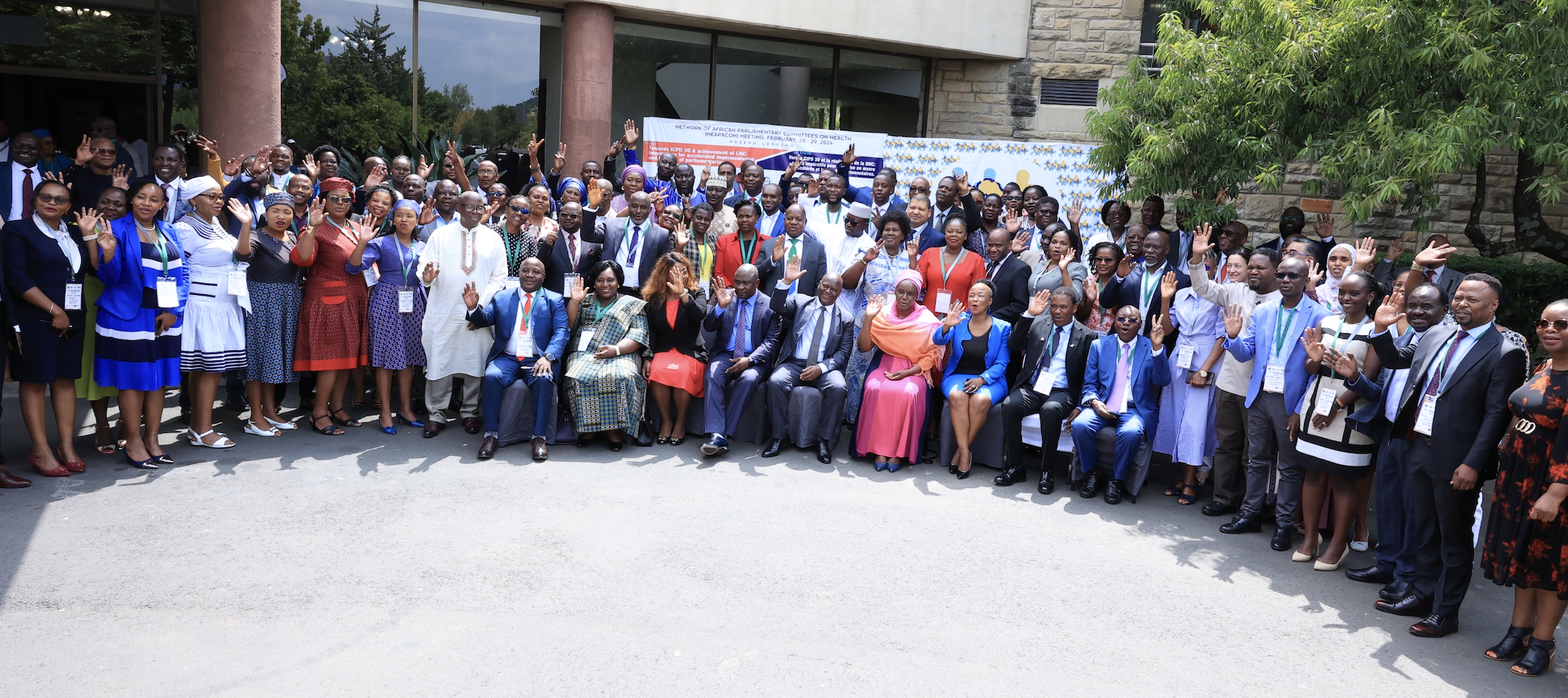
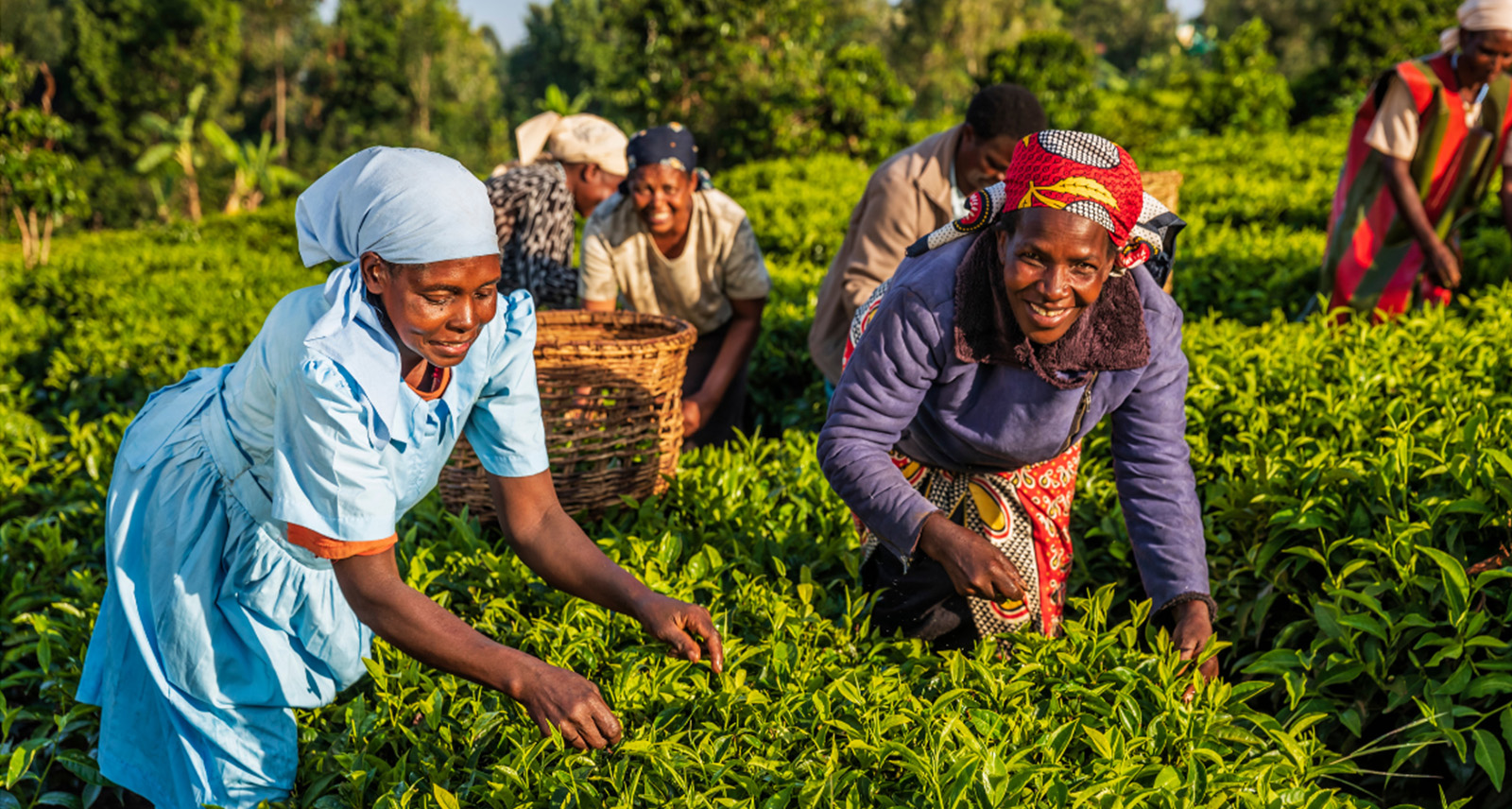
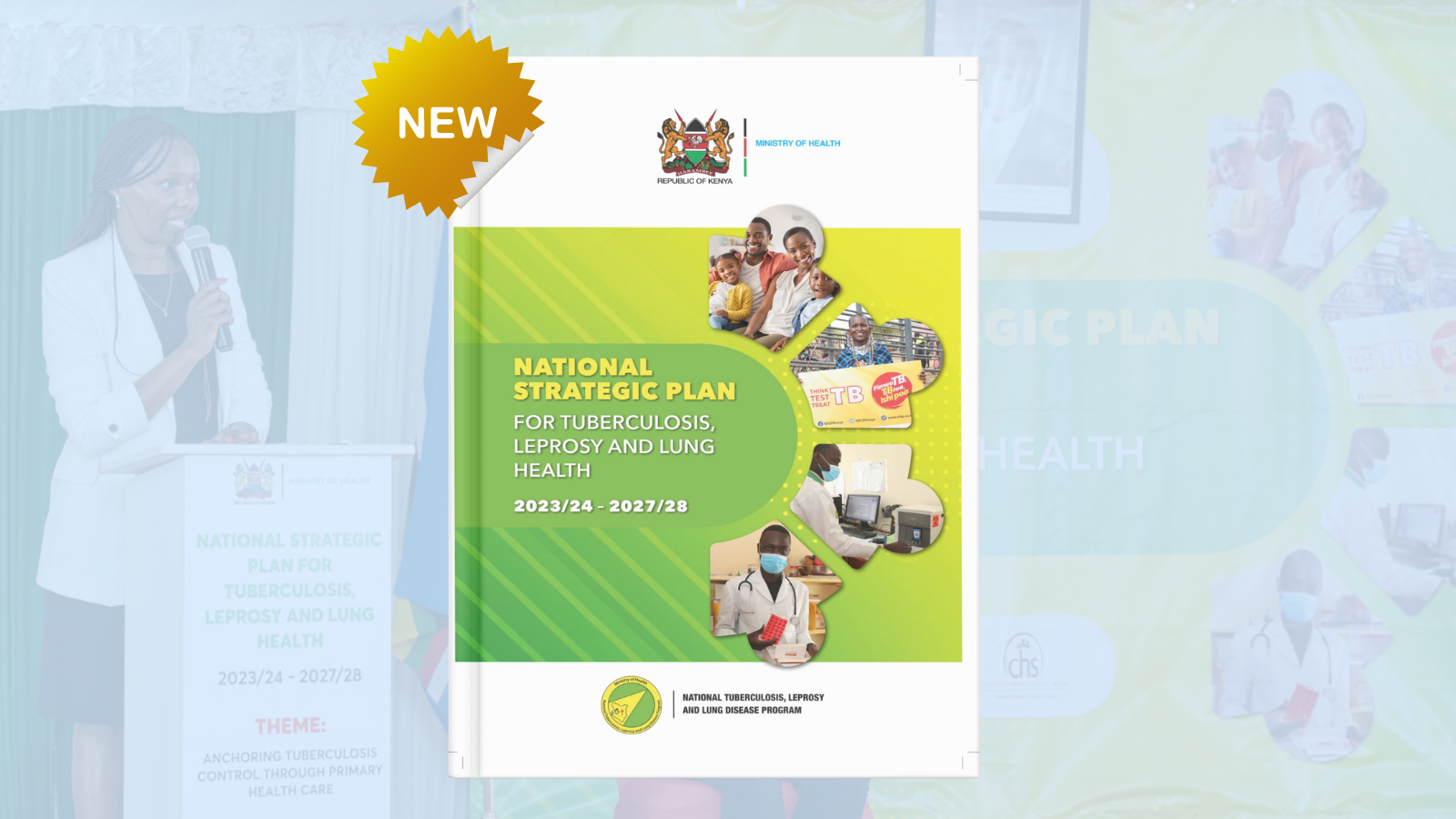
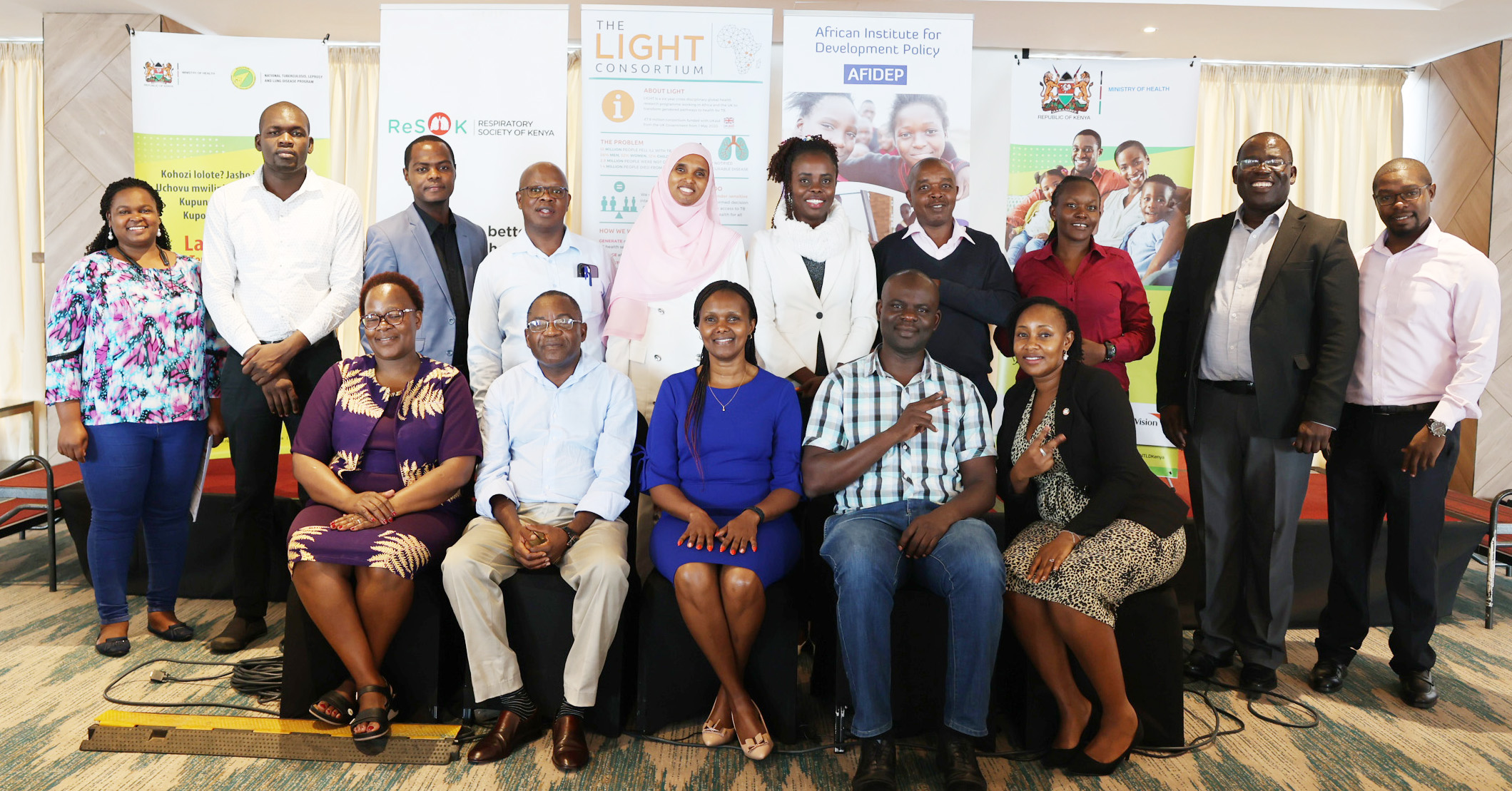
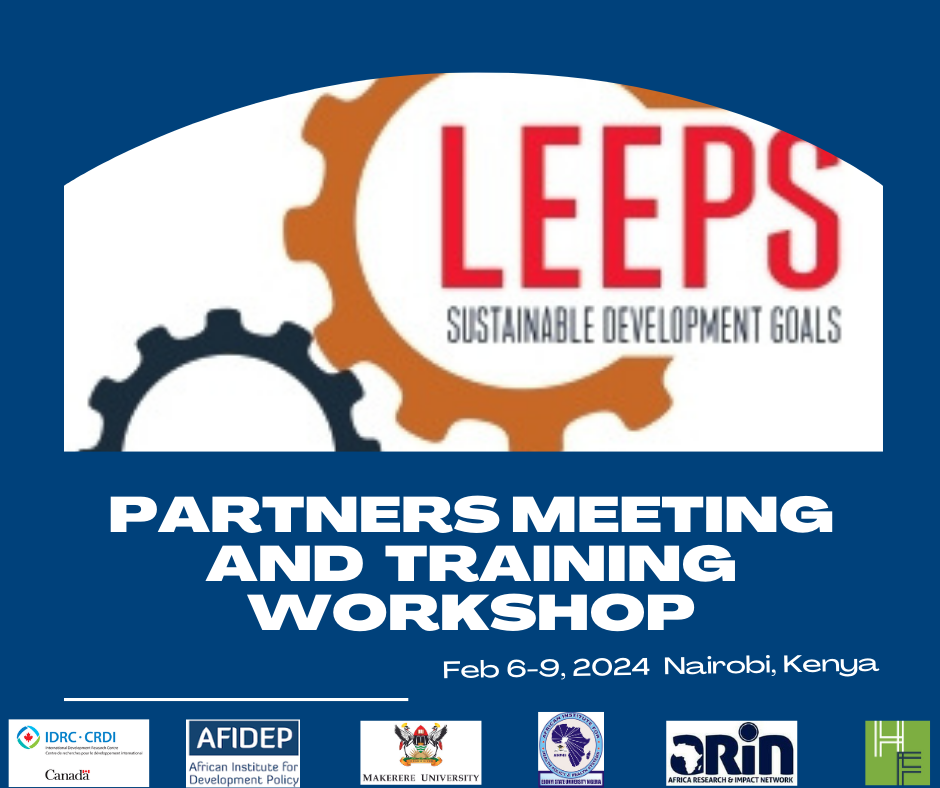
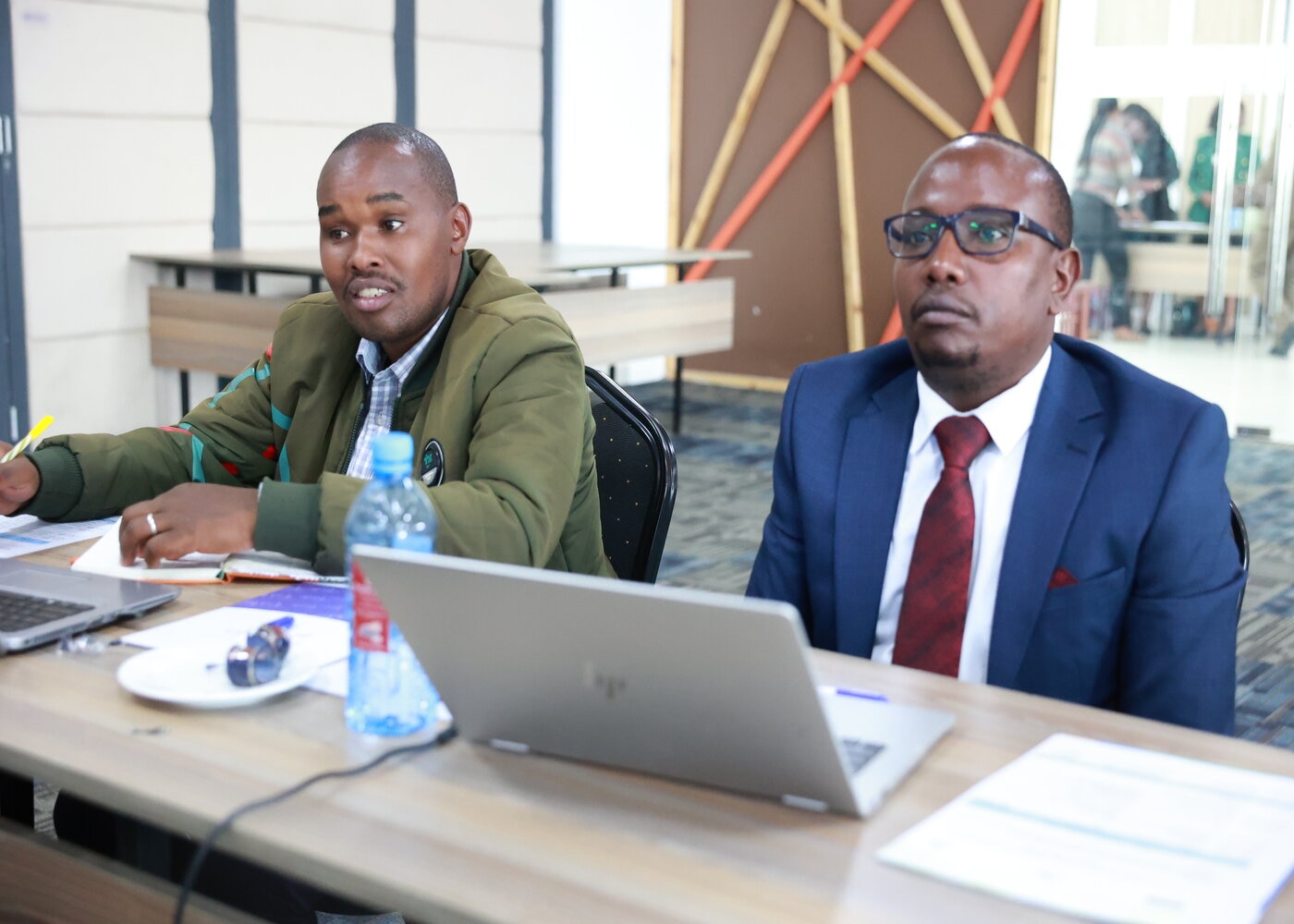
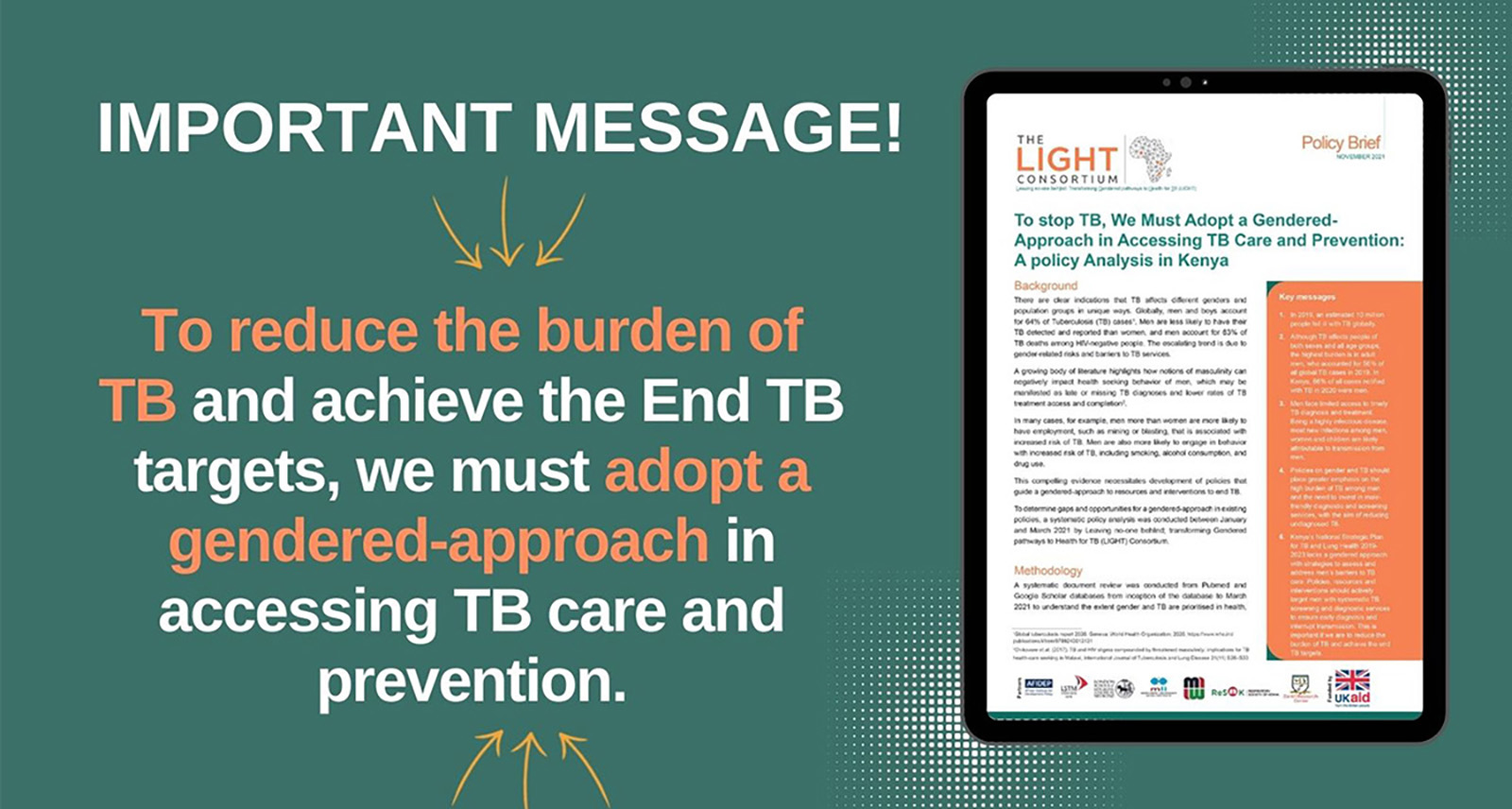
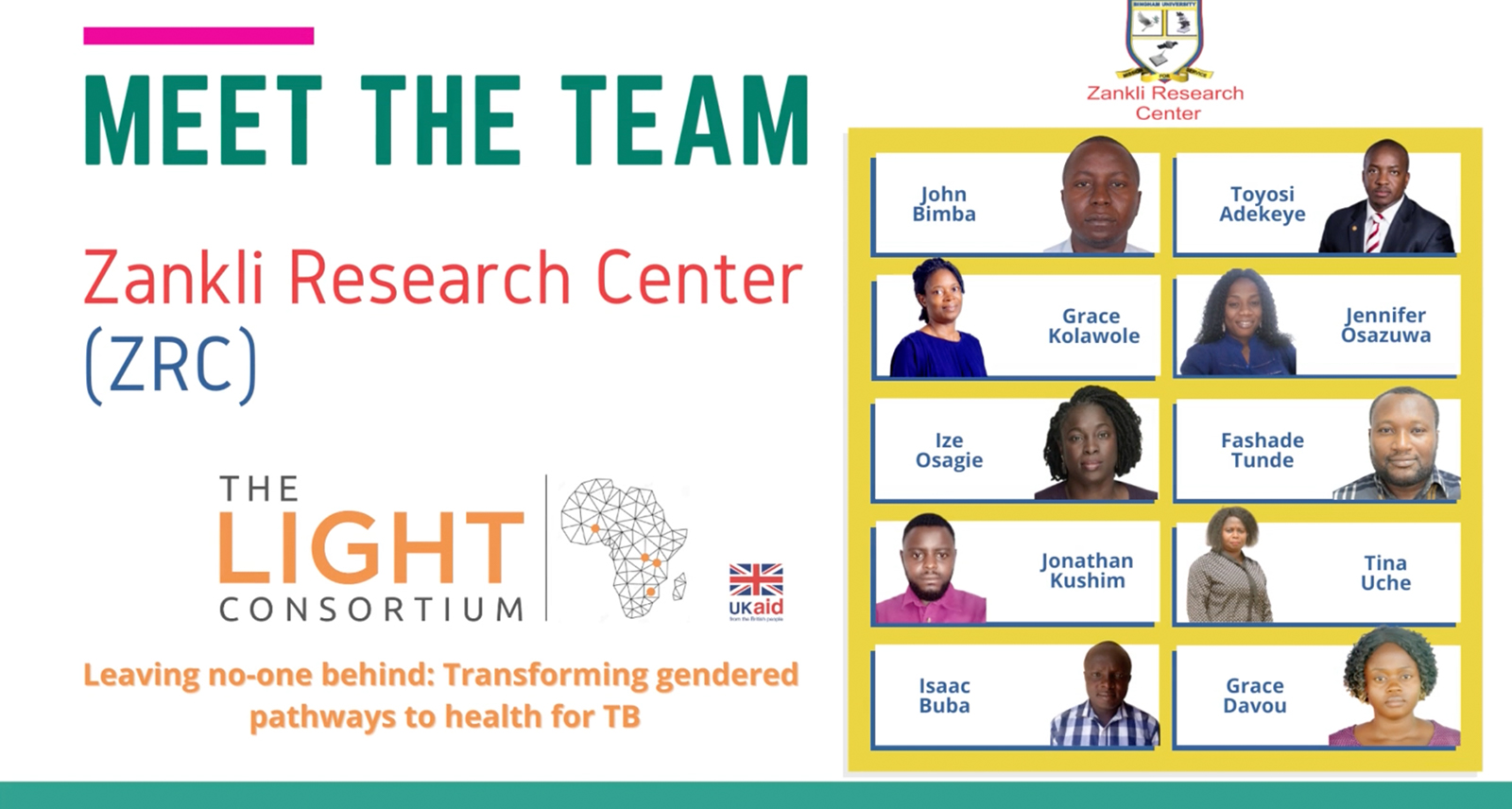
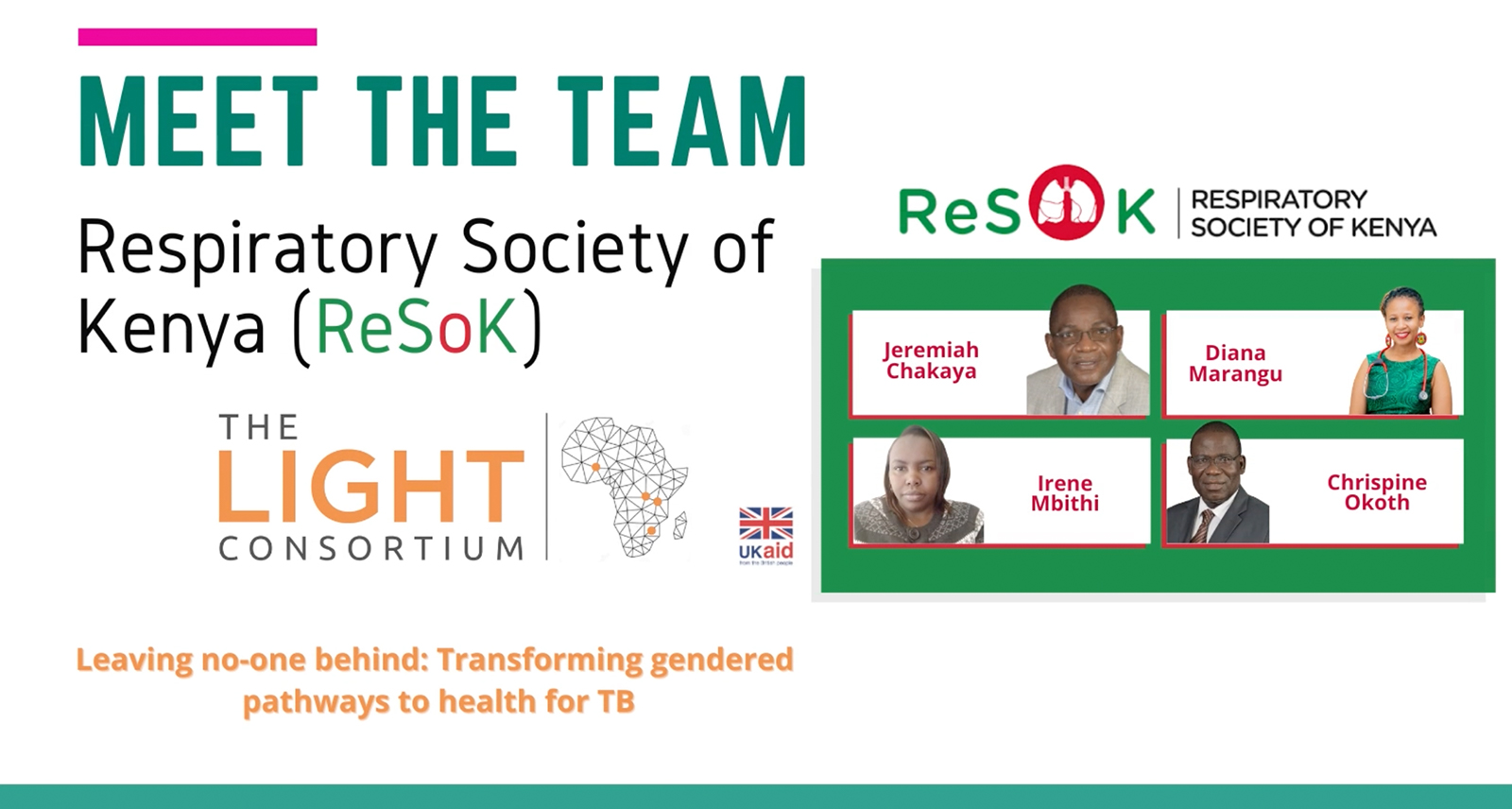


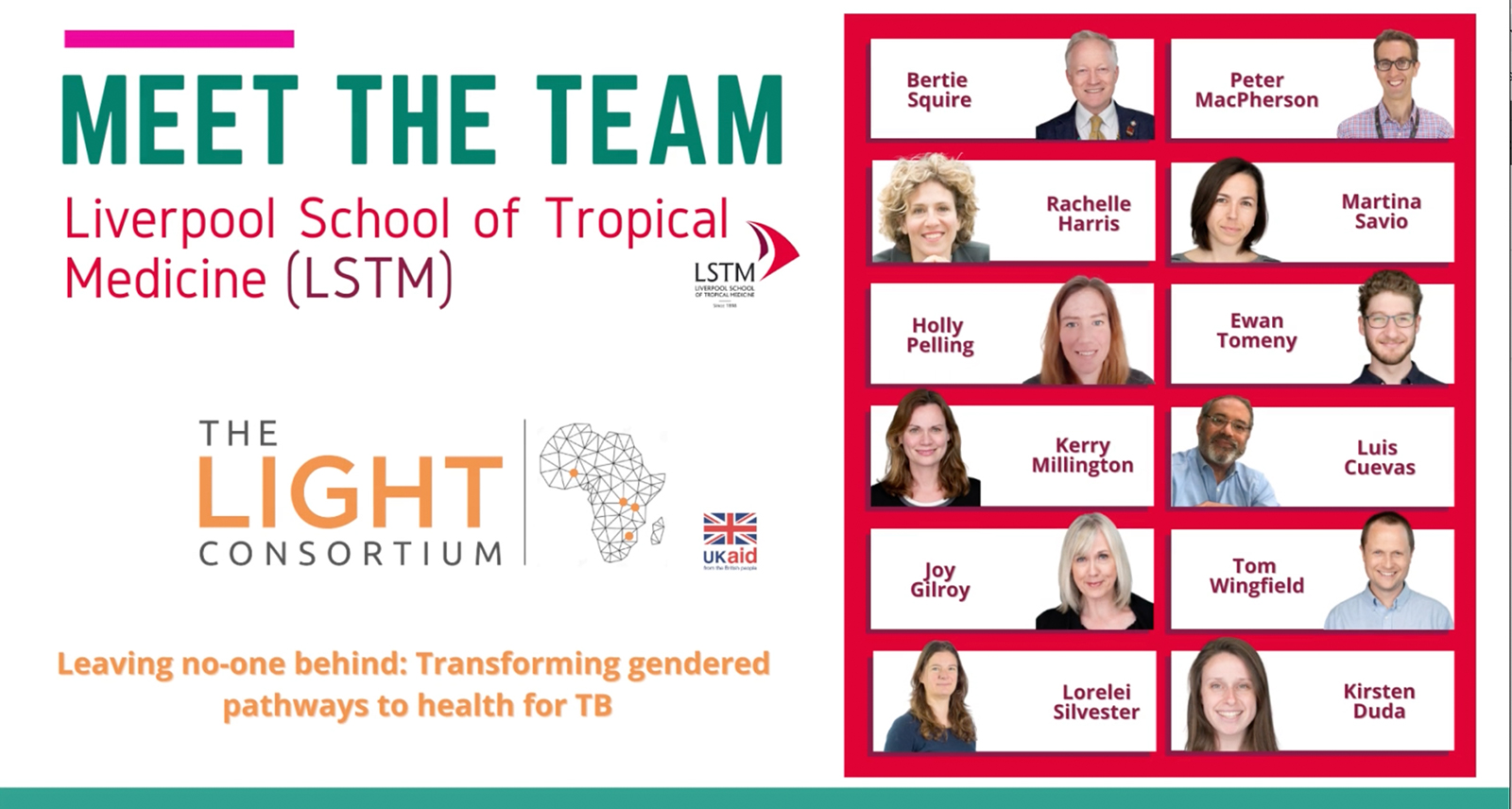
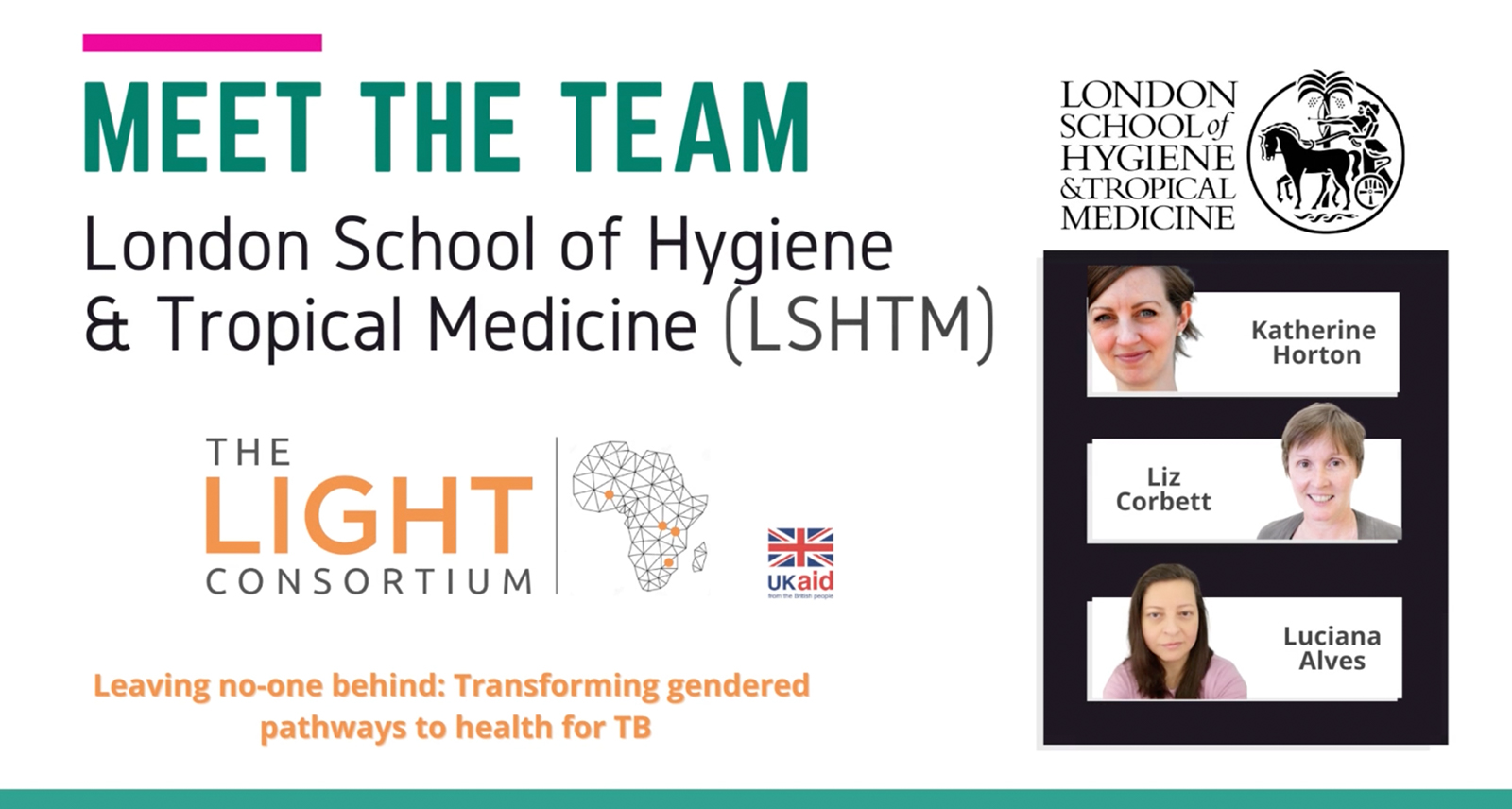
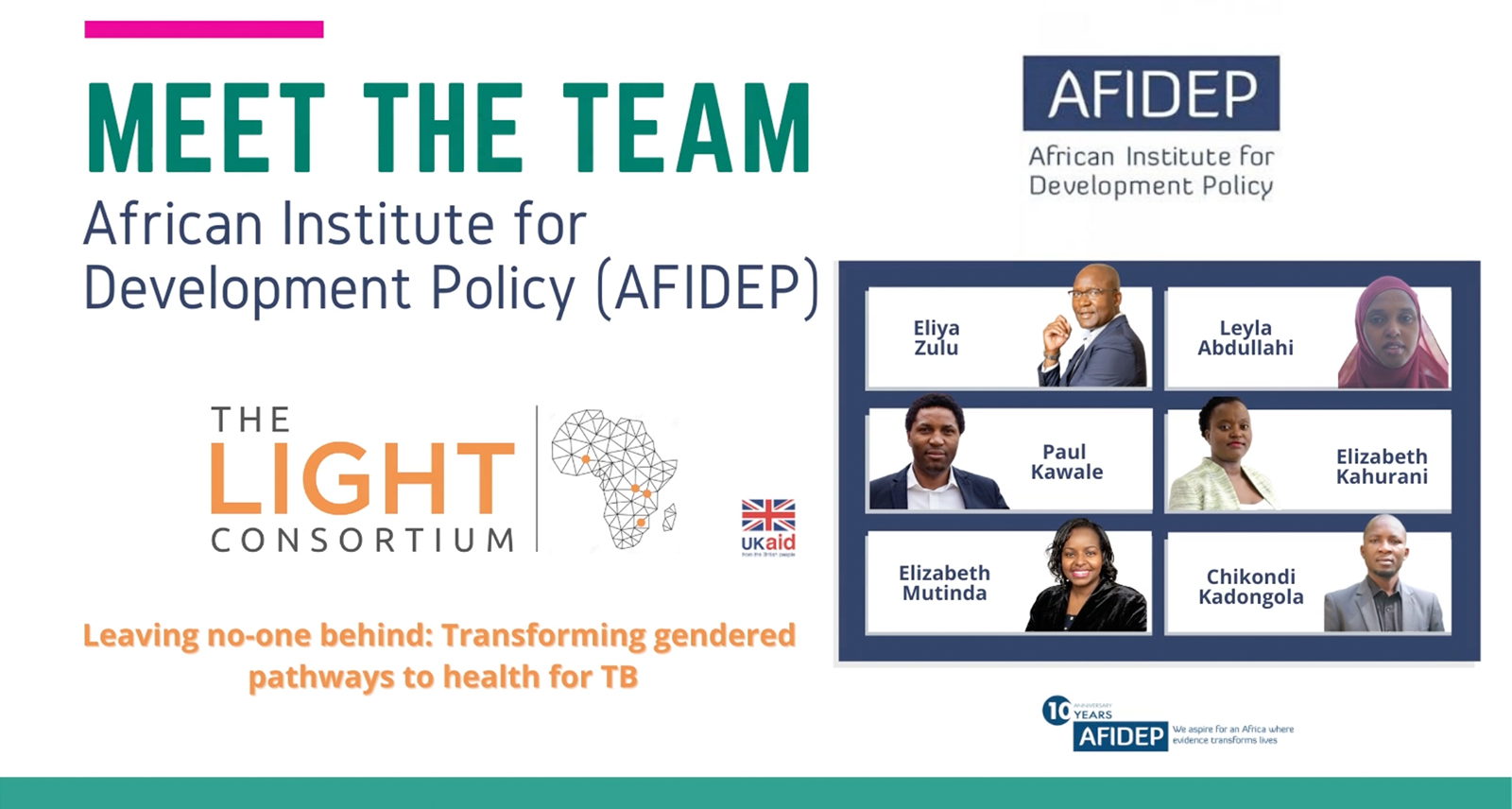

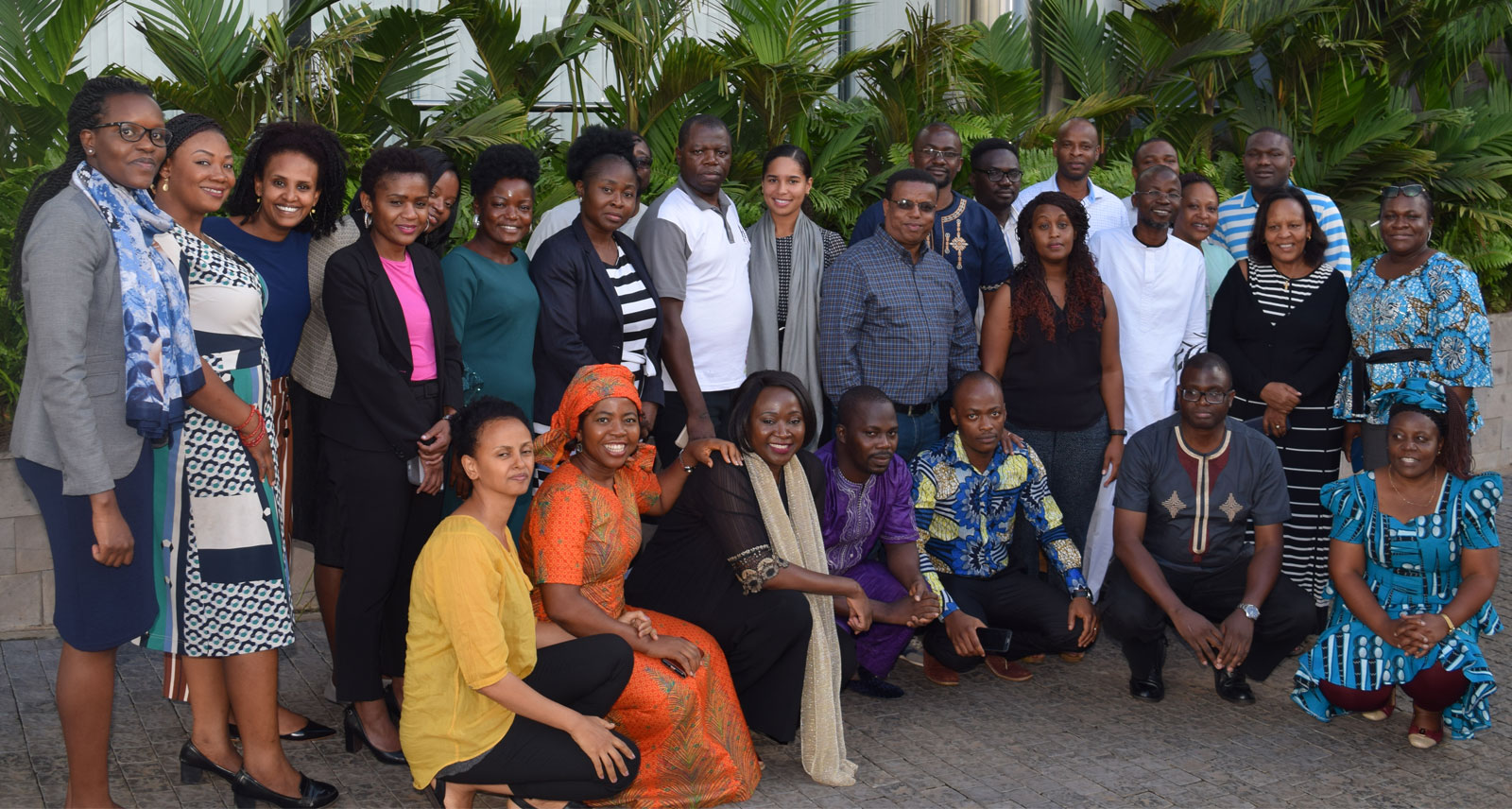
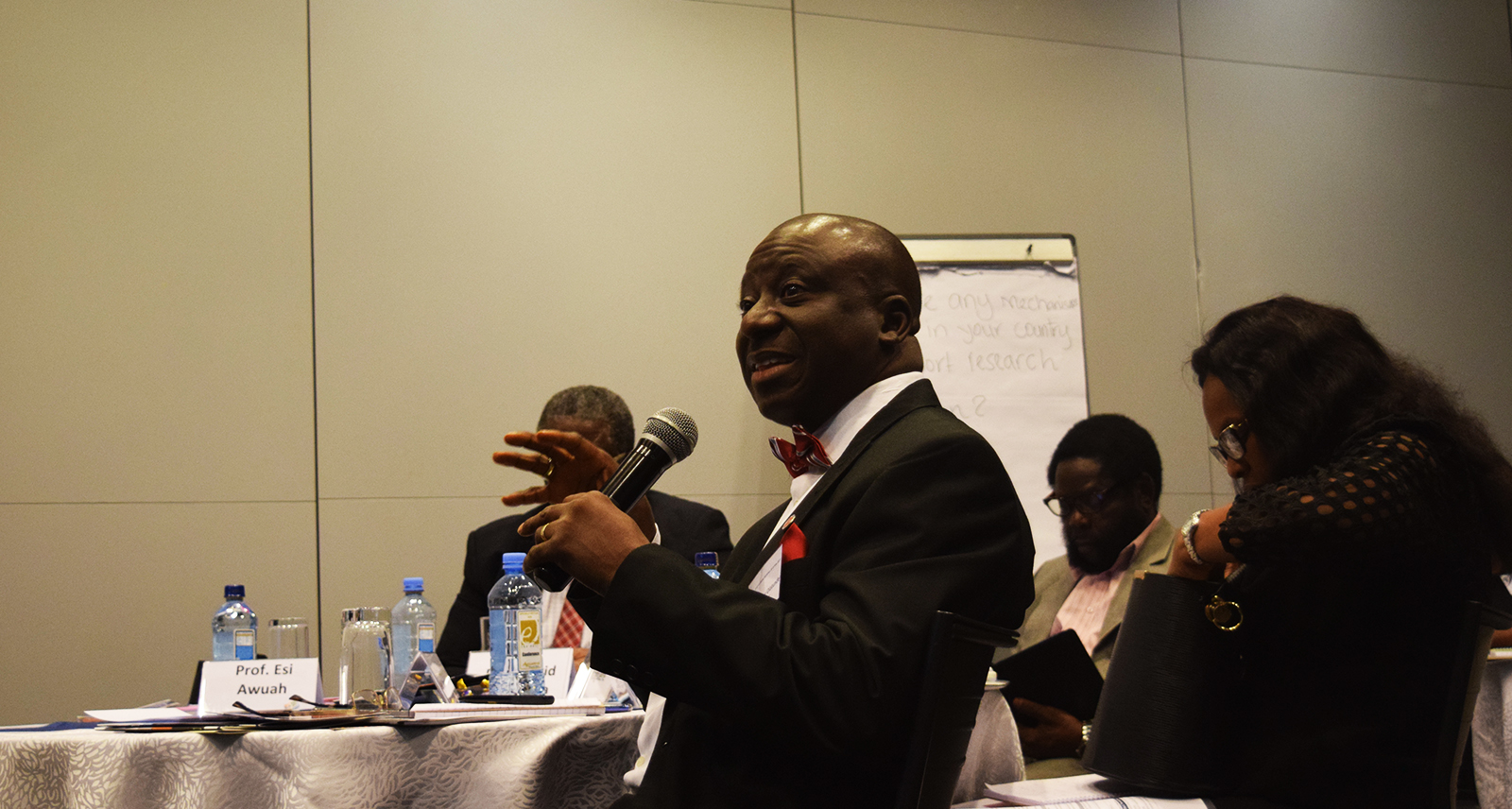
Mar 2024
Mar 2024
Jun 2023


